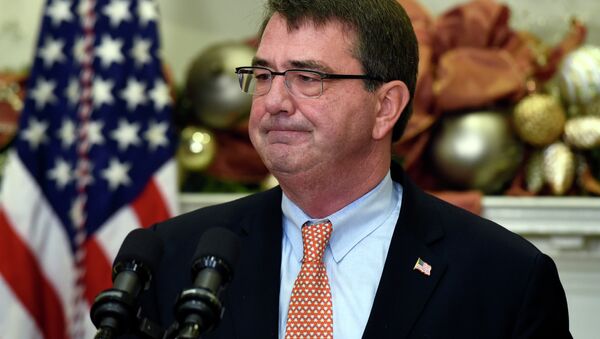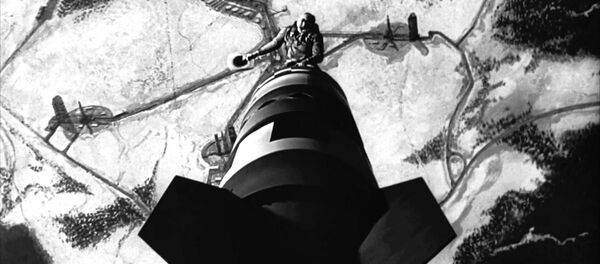According to Carter, the US is facing numerous geopolitical challenges and defense budget cuts would put the country at an existential risk.
DOD News reported that the 2017 defense budget request totals $582.7 billion — "$523.9 billion in the base budget and $58.8 billion in the overseas contingency operations fund."
"Avoiding sequestration would prevent $100 billion in automatic cuts and allow the department to maintain stability and sustain critical investments," the news outlet wrote citing the US Secretary of Defense.
In fact, the latest Peter G. Peterson Foundation's study shows that Washington spends more on defense than China, Saudi Arabia, Russia, the United Kingdom, India, France and Japan combined.
The Center on Budget and Policy Priorities, a nonpartisan research and policy institute, revealed in March 2016 that almost 16 percent of America's budget, or $602 billion, was paid for defense and security-related international activities in 2015. That included $74 billion spent on operations in Afghanistan and other related activities, described as Overseas Contingency Operations in the budget.
Interestingly enough, the US defense budget has soared since 2001, when it amounted to $287 billion, to 2015 by almost $315 billion. It seems paradoxical: back in 2001 America's major geopolitical adversaries, the USSR and Warsaw Pact, were in ruins. Given this, it looks as if the number of external threats for Washington has increased not lessened with the collapse of the Soviet Union.
The question then arises, what really is US Secretary of Defense Ash Carter defending, the country or the military budget?
"Ash justified all the needless spending by telling the Senators that there are five 'security challenges' confronting the United States — terrorism, North Korea, China, Russia and Iran — before lapsing into Pentagon-speak about why more money is always better than less money," Giraldi continues in his article for the Unz Review.
However, although terrorism remains a transnational security issue it cannot do serious damage to the US, Giraldi notes, adding that in fact the United States would be less endangered by Daesh and al-Qaeda if the Pentagon and NATO had not destabilized the situation in the Middle East, North Africa and Central Asia, creating power vacuums in the region.
North Korea also does not threaten the United States, "even in a worst case scenario," he notes.
At the same time, "Ash favors a 'strong and balanced approach to deter Russian aggression' while also citing a China that is 'behaving aggressively.' And there is always Iran, which is demonstrating 'reckless and destabilizing behavior' manifesting as aggression, as well as 'malign' influence and threatening Washington's upholding its 'ironclad commitments' to Israel," Giraldi continues.
According to the CIA veteran such an approach is ridiculous. What Carter depicted as an "aggressive" posture is in fact a reaction to Washington's assertive foreign policy.
"In reality Russia reacted to American interference in Ukraine, China is involved in regional disputes that have been playing out since the end of the Vietnam War and a non-nuclear Iran is surrounded by enemies," Giraldi writes.
"None of them threatens the US," he stresses.
Indeed, Joint Chiefs of Staff Chairman Marine General Joseph Dunford and NATO's top military commander General Philip Breedlove are also beating the war drums.
Much in the same vein, the influential US RAND Corporation and its military-industrial sponsors continue to urge American lawmakers to increase military spending on NATO forces in Europe, citing the Russian phantom menace.
In light of this Giraldi dubs the Department of Defense a "Department of War." "That is because what the United States actually does globally through its African, European, Pacific and Southern 'Commands' has little to do with what anyone would plausibly define as defense," he elaborates.





